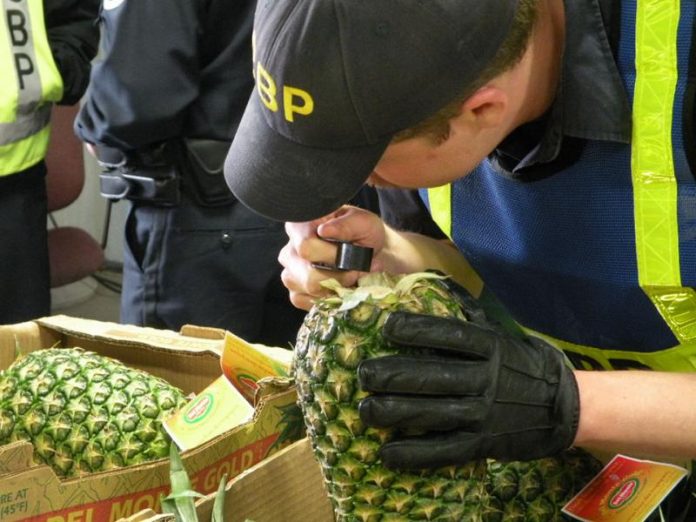
PHILADELPHIA — The U.S. Department of Agriculture (USDA) recently confirmed that a longhorn beetle that U.S. Customs and Border Protection (CBP) agriculture specialists intercepted in a shipment of Ecuadorian bananas in Gloucester City, N.J., is the nation’s first recorded find of this species.
CBP agriculture specialists discovered the insect specimen on May 2 during a routine produce container inspection, and submitted it urgent to the local USDA entomologist for identification. The following day, the USDA entomologist determined the specimen as Psapharochrus bivittus (Cerambycidae) with an additional comment that this specimen is a new pest. On May 16, the USDA national pest identification database confirmed the specimen as the nation’s first reported discovery of Psapharochrus bivittus (Cerambycidae).
Insects belonging to the family Cerambycidae, or longhorn beetles, are significant pests to living trees with potential to cause extensive damage and massive losses to living trees, untreated lumber and native tree species.
“Intercepting destructive insect invaders at our nation’s borders, and before they can threaten our agriculture industries, is of great importance to Customs and Border Protection,” said Susan Stranieri, CBP Area Port Director for the Port of Philadelphia. “CBP agriculture specialists take their job very seriously, and this ‘First-in-Nation’ insect interception is a significant discovery.”
CBP agriculture specialists have extensive training and experience in the biological sciences, risk analysis, and in imported agriculture inspection techniques. CBP agriculture specialists are the first line of defense in the protection of U.S. agriculture, forest, and livestock industries from exotic destructive plant pests and animal diseases.
On a typical day nationally, CBP agriculture specialists inspect over 1 million people as well as air and sea cargo imported to the United States and intercept 4,548 prohibited meat, plant materials or animal products, including 470 agriculture pests and diseases.

